Drawing seems like a fun skill. It makes it possible to bring your ideas out, to show them to others in shape and color. And all this with a few simple tools! No wonder that so many people dream of learning how to draw. Unfortunately, this kind of skill sometimes seems impossible to attain. Why is it harder than, let's say, playing chess or cooking?
In this article I'd like to show you that even though drawing is hard, sometimes you make it harder with your own mind. These mental obstacles stop you from learning and bring needless frustration. If you understand them, they'll disappear and you'll finally be free to learn!
1. Drawing Is a Single, Simple Skill
"I can't draw" is very tricky wording. Usually, the people who say this really mean: "I can't draw things that look realistic". But instead of trying to understand what makes drawings look realistic, they give up at the very beginning, because, well, you can draw, or you can't—there's no other way.
Where does that belief come from? When you were a child, you drew a lot. And you were able to do it, there was never any doubt. At least until you noticed that some children were praised more often than you. You understood that for a drawing to have any value it must resemble something from reality. Your drawings didn't, no matter how hard you tried, so with time you came to the conclusion that you couldn't draw.
It's as if the value of drawing has been sealed into your definition of this activity—just as when you say "I can't cook" you mean "I can't cook well", which isn't the same as "I can't swim" or "I can't play chess".
With every skill there is a spectrum of proficiency. First, there's a border between 0 ("I can't") and 1 ("I can a little"). Then there are other levels, each harder to achieve than the previous one. Let's say that 10 is perfection, as impossible to reach as the speed of light. You can pursue it, but the farther you go, the slower.

Surprisingly, most people see drawing as a skill with only two levels: 0 ("I can't") and 10 ("I can perfectly"). If you like someone's drawing, they can draw, and if you don't, they can't. Simple as that! And that simple belief is able to ruin your dreams about drawing. How could you possibly jump over that huge gap between levels 0 and 10?

The truth is that, just like with cooking, there are many levels of proficiency in drawing. Level 0 would be for a person who can't hold a pencil and make marks with it. Can you? So, you're already on level 1, at least! Keep in mind that this list was created solely by me, and it's not based on any scientific research. It may look different to you, depending on what you want to achieve and what exactly you mean by "drawing skill".
- You can hold a pencil and make marks with it.
- You can draw simple geometrical shapes, but you don't control them—they turn out or they don't. You can also trace lines from another picture.
- You can draw simple geometrical shapes intentionally.
- You can copy what you see precisely, both in terms of outlines and shading.
- You gather visual references in your mind, so you can draw something without seeing it at the time.
- You perform analysis of the real world, so you can create something new out of chunks of reality (e.g. a human in a pose you've never seen).
- You don't use outlines only, but utilize a whole range of techniques; you can shade realistically and give an illusion of depth and texture without a reference.
- You can draw things that don't look realistic, but they're recognizable as "true" by everyone.
- Your drawings drawn from imagination are indistinguishable from photos and/or they have a style even better than reality. You create new worlds and dimensions with your own mind and pencil, and you do it incredibly fast.
- You can draw everything, and you make unrealistic things feel more real than real ones. There's nothing else you could learn.
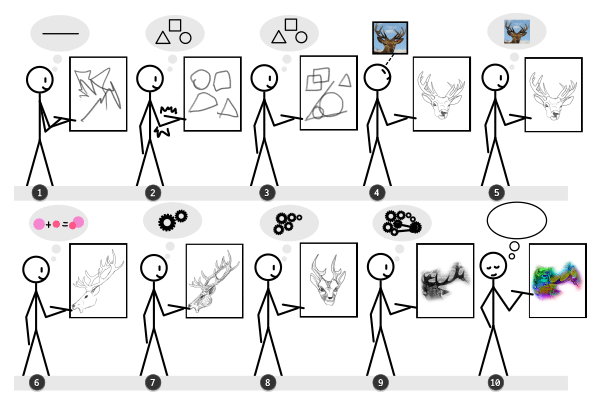
As I said before, the distance between levels grows exponentially, which means that with every level it takes more and more time to "upgrade". It also means that the very beginning is easier to handle than later levels, and that surely there are more beginners (1-2) and proficient beginners (3-4) than drawing specialists (5-7). Obviously, there are very few drawing gurus (8-9), and there's no single perfect artist (10), though the "gurus" may hopelessly pursue that level to the end of their lives.
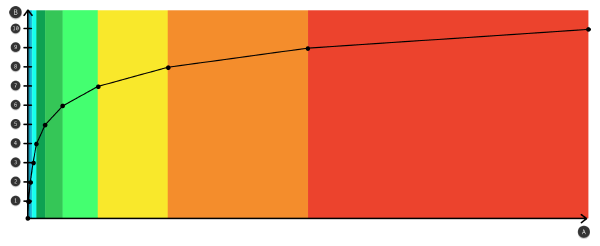
Why do we "squeeze" all these levels into a pair? Because it's easy to tell a drawing you like from a drawing you don't like. When you're a beginner, that's all you can see. It takes a slightly more skilled artist to notice a difference between styles and spot mistakes in apparently beautiful pictures. As a beginner, you can't notice a mistake, because you don't know what a drawing mistake is! So, all that remains in terms of drawing stages is "I wish I could draw like this" (10) and "even I can draw like this" (0).
And it all leads to another misconception:
2. You Can't Learn How to Draw If You Weren't Born Gifted
As we've noticed, for a beginner there's a huge gap between their skills and what they'd like to achieve. At the same time, they see how some people just... do it. You try to scratch some lines to make them resemble a stick figure, and they, in the same amount of time, draw a realistic human. How can it be possible?
I've raised the issue of talent in many of my articles, because it's the most destructive belief of them all. It makes you hopeless from the start. It's the belief that if you tried to draw and weren't praised for the effect, then you're not talented and you will never be good at drawing. Just... stop trying.
It adds a weird meaning to every "I wish I could draw like you" compliment. Isn't that just an expression of sorrow that you weren't born gifted? It's even more sinister when you compare it to the sorrow of a person who lost their sight. They can't draw—do you think you have exactly the same level of inability?
Talent can be seen as a set of characteristics that make a person more efficient at learning. A talented artist gets through the first few levels more quickly than others, but they're not immune to exponential growth. They most likely get stuck at level 4, and "stuck" is a very good word here. They got through the first levels so effortlessly that they didn't even notice they were learning anything, and now they expect it will be like this straight to level 10.
Notice that the levels after 4 are more active: "gather", "perform analysis". It doesn't "happen" anymore, so an artist needs to put an effort into this. This is why talent can actually become an obstacle. If you were actively learning something from the start, it's normal for you to keep learning harder and harder things. For a talented person it's like hitting a wall after a smooth ride!

So, do talented people have it easier at the start? Yes, but it's not such a huge advantage as we tend to think. It's more like having a +5 points advantage when it takes 100 points to be good. Even if you assume that a person was born on level 4, don't forget that these first four levels are the easiest to learn! It's not so hard to catch up with them, if you only accept the fact that you must learn it—it will not be given to you.
When you see a beautiful drawing being drawn in minutes, it doesn't mean that the person is talented. What you see during these few minutes is the effect of years of practice, not being born with some kind of learning advantage. There are lots of talented artists on level 3 who have no idea that they are talented—because they compare themselves to someone who's working on their skill. To someone who noticed, at one point, that drawing must be actively learned.
If you expect that drawing skill will come to you automatically when drawing and it doesn't happen, you blame talent. But drawing anything has little to do with learning to draw. You can draw a hundred hands and it will not make you any better if you didn't analyze the structure of a hand first. Don't wait for skill to magically come to you—start learning instead!
3. Drawings Turn Out or They Don't
This is a continuation of the topic of talent. When beginners draw, they don't really create anything. They just think of something, press a pencil to the paper, and hope for the best. These are perfect conditions for the myth of talent! Because when you have no control over the outcome, you can only "wish to be good".
The truth is things "turn out" only when they're imprinted in our minds, just like walking or speaking. They don't require our attention, because we put in enough effort to learn them in the past. The first few levels of drawing skill are based on things we might have already learned, and that's why they come so easily to some people. For example, holding a pencil may be based on the same skill that was required to hold a spoon.
The higher we get in the spectrum of drawing skills, the more detached from reality they get. Why would you try to remember what a cat looks like (level 5), when you can always go and take a look? Why would you analyze how a human knee bends (level 6), when yours works just fine? Skills based on these actions don't have the chance to be developed, so your mind can't use them to make a realistic drawing "turn out" without your help.
Experienced artists have a lot of complicated skills imprinted in their minds. When they draw an anatomically accurate human silhouette from scratch, without any guide lines, that's the result of hours of active work. It's the same with any skill—if you practice long and hard, with time it gets more and more automatic for you.

A talented beginner sees drawing as something that "turns out", because it always did. You start as a child, drawing things just because you can, and you notice that the more you draw, the better it gets.
However, with this approach you can only get to level 4, because only these few first levels are based on manual and "mind" skills—the ones that are possible to learn unconsciously. If you have an exceptional memory, you can even reach level 5, but this is where it stops. You can't modify reality if you've never tried to understand it.
You can tell a talented artist from a skilled one by one simple fact: the latter is not attached to every sloppy sketch, because they know they can replicate the effect or even draw something better next time. A talented artist draws a lot, and when from time to time something quite realistic "turns out" (by accident, not by skill!), they immediately fall in love with it. They don't know how they drew it, so they wouldn't be able to replicate it.
The worst thing about it is that when you have no idea what made the drawing better than others, you can't learn from this. For a skilled artist there are no drawings that don't turn out—there are only mistakes that can be fixed in the next one.
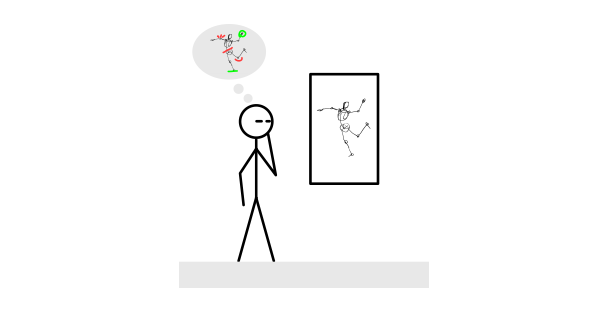
If your drawings sometimes turn out and sometimes don't, it's time to change perspective. Stop waiting until your hand and mind work together to draw something for you. Take a drawing that turned out well and compare it to one that didn't. What's the difference? What can you learn from it? What can you use for another drawing?
And if a drawing didn't turn out, ask yourself why. What made it look bad? Why don't you like it? If you were drawing a wolf and its legs seem too long and crooked, go and find out what wolf legs really look like. Don't trust your memory! If your manual skills are all right, and a face you draw looks terrible, it's probably because you thinkit looks like this. Don't you? So, are you able to describe it from memory, without drawing?
Your mind has been learning how to draw on its own for years, and it has led you to where you are now. If you want to get any higher, it's time to help it!
4. Drawing Is About Impressing Others
Isn't that the reason why we want to draw? As children, we drew for pure fun, and only later we discovered that good looking scribbles were powerful enough to bring us sweet praises. And that's something very important to us! But if you treat this power as the only reason to draw, prepare for suffering. Do you really want to spend hours a day working on a skill of which the only goal is to please others?
How many times has your pride in a drawing been put out by an unfavorable comment? The joyful hours you spent working on it, and that satisfaction you felt when you finished, they all vanish... because some stranger didn't like it as much as you did. Maybe it would be best not to show your work to anyone, but you still do it, hoping for a favorable comment that will make your day.

The fun of learning, the satisfaction of creating something, they're all worthy on their own, even when nobody sees the effect. It's natural that you want to share your satisfaction with others, but when it's your only motivation, the beginning will be a path of constant frustration.
When you get that "I wish I could draw" feeling, ask yourself what the reason is. Make a list of motives, and see if any of them is worth the effort. It's not easy to learn how to draw well, and it takes a lot of time you could spend elsewhere, so you need to decide if it's really what you want. If "being admired" is number 1 on your list, maybe it's better to focus on something you like doing—admiration will come when you get good at it.
5. Good Drawing Is Realistic Drawing
I've written an article about style before, so let me just tell you why this is a serious block to your progress.
Drawing in many cultures was created to emulate reality. It's obvious then that the more realistic it is, the better. However, since the invention of photography, we don't compare drawings to reality anymore—we compare them to photos instead. You may think there is no difference, but in fact cameras, with their lenses and hardware, capture a different vision of reality than us, with our eyes and brain.
The images created by a camera are realistic enough for us to believe that this is how reality looks. We don't notice that these pictures are only one of many representations of reality. Even a movie, with motion and sound, isn't a complete vision of it. Photos made us think that reality looks like this:

While what we see looks closer to this:
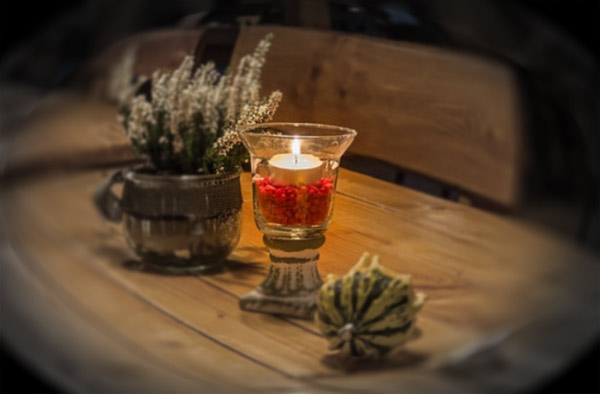
The other point is that humans have a great ability at recognizing patterns. We don't need 100% perfect representation of reality to recognize it. In fact, in drawing we use lines—something that doesn't even exist in the world around us! In painting, patches of dark and bright shades are used to create an illusion of shadow and light. The range of simplification we can make is quite vast!

There's also a third component of vision, right after the lens and hardware (brain)—perception. The same photo can be perceived differently by different people, based on their experiences and memories, or even their mood at that moment. A shift of colors may change the subject of a picture from joy to tragedy, from a story of hope to a story of despair. When you change the flow of lines, you may sacrifice a bit of realism in favor of emotion.
Considering this, why would we limit ourselves to only one style, one being a manual copy of a photo? There are so many ways to describe reality, and you can make a drawing more complete than a detailed photo simply by including the side of perception. Why stress over every deviation, when we can use it to send a message through our drawing?

If seeing a stylized and a realistic drawing next to each other, you think that the latter is an improved version of the former, consider this. A 100% realistic drawing can be created simply by visual copying dot by dot/pixel by pixel. You don't need talent for this, only a lot of time and patience.
Can we call such a person an artist? Do they create anything? They surely put a lot of effort into this and it may be worthy of respect, but in this case, is a person covering a building with post-it notes an artist, too?
Stylization isn't easier than realism, and neither is it a method of creation for lazy or unskilled people (as long as you don't copy somebody's style). If anything, it's actually harder. It's like creating a new kind of realism—something that doesn't have a counterpart in reality, but we do recognize it anyway.
Just to clarify, it doesn't mean you don't need to understand reality to draw in your own style. Every style is a modification of realism, and every style is based on rules. If you post a drawing that "turned out" quite well in your opinion, but someone critiques it for not being realistic, don't use the "It's my style!" shield. Style is intentional; if your intention was to draw realistically, or you didn't have any intention at all, don't lie to yourself.
6. If You've Tried in Vain, It Means It's Not For You
This one is connected to the myth of talent, too. If you've been learning for years and have worse effects that someone who's just started, it doesn't necessarily mean there's something wrong with you. There is a good chance that during these years you weren't actually learning!
This may be connected to point 3 of this article. If your "learning" is based on drawing, drawing, and drawing the same thing over and over until it starts looking better, no wonder that you don't get satisfying results. It's like trying to reach a certain destination just by driving a car in a random direction.
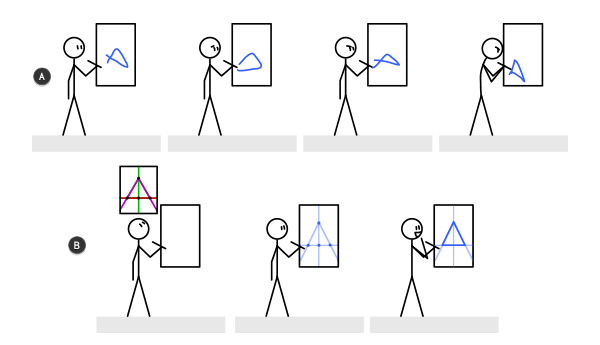
And maybe you didn't even try to learn, in any way. Maybe you sat in the car and when it didn't drive on its own, you just got out. It may happen when you believe in talent! In this case all you need to do is to change your expectations. You need to put some effort into this, and if it's easy, you're probably not learning!
And maybe it really is not for you. Maybe you have some disability that makes drawing impossible. In this case, you can still choose some other method of creation, if this is your motive: painting, sculpting, needlework. And if your motive is being admired, then, again, stop pushing yourself into the impossible! There are easier ways to get admired by doing something more pleasant for you. Don't choose drawing only because it looks easy—it isn't.
7. A Good Artist Can Draw Anything They Want
This is another myth linked to point 1. Drawing isn't one skill—it's a vast field, with cartoonists on one side and architects on the other. Being good requires specialization; by trying to be good at everything, you'll most likely become averageat everything.
Until level 5, drawing skill seems to be quite unified and objective. But once you reach level 5, you need to decide what to focus on. Creatures? Humans? Backgrounds? Vehicles? Outfits? Buildings? Weapons? Then in each of these you can find other sections. For example, creatures may include fantastic beasts and animals, and later dinosaurs, mammals, amphibians, reptiles, birds, and then all the families and species... There is so much to learn!

When you look at it this way, you finally understand what drawing is about. After level 4 you should be able to draw anything from a reference, but if you really want to create, this is where the really hard work must begin. And there's no point in trying to learn everything. Pick something that really interests you, maybe something that attracted you to drawing in the first place. Then give it all your heart.
Specialization works like a fractal; you can go deeper and deeper, discovering more and more branches every time. And it never ends! You can look at this like a development tree in a RPG—you can invest a lot of points in one skill, or use them more sparingly here and there. That's why you, a beginner, may be better at drawing animals than a famous expert on weapons.
There's a grain of truth in this belief, though. A good artist can't draw anything they want, but they can learn anything they want. They have experience at learning, and they know what to expect and how to plan their development. Still, it's better to stay focused, at least until you feel you are decent at your chosen category. Don't jump from human anatomy to backgrounds, only because you've seen other artists drawing them. You're not supposed to be good at everything that can be drawn!
8. You Need Special Tools to Be Good at Drawing
When I visit a bookstore, I often check all these "how to draw" books to see if I can find something worth recommending. There are two types of these books: draw completely for fun, and draw completely professionally. The first type is based on step-by-step guides of how to draw a certain thing, and they don't really teach anything. You get a drawing in result, but only because the book told you what to do. Without it you're lost.
The other type is more tricky. Usually, in its first chapter we have a long discourse about tools. The author assumes that if someone wants to use a pencil only, they'll reach for that first type. So here they talk at length about all the kinds of pencils, erasers and kinds of paper, adding information about tools you had no idea have something to do with drawing, like ink or charcoal.
You're reading that first chapter, holding your HB grade pencil and a cheap eraser, in front of a thin sheet of printer paper, and you get your doubts. It's like trying a new recipe, not having any of the ingredients and thinking which substitutes to use. It's making you quite concerned about the result!
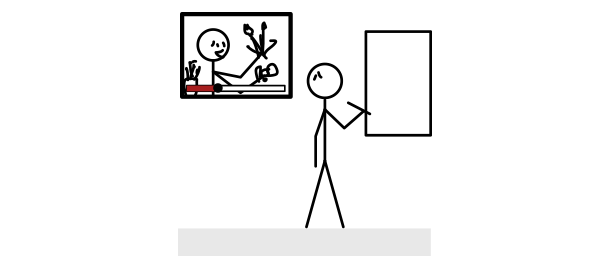
The same happens when you see people drawing on a graphics tablet, and all you have is a pencil. They can use layers, they can undo every mistake, and they have colors, too. How could you be that good with a pencil only? And if you already have a tablet, but it doesn't have a built-in screen (like Wacom Cintiq), you too feel frustrated seeing how sloppy your lines are because of it.
I've got one inspiring answer for you. Look at the sketches of Leonardo da Vinci. He most certainly didn't have a graphics tablet, not to mention a Cintiq! And you can create sketches like this with any pencil, or even a pen! All you need to do is to focus on the topic you're learning, not the tool. An HB grade pencil will do just fine, if you let it do its job.
There are countless techniques of drawing, and that's why there are so many tools you can use for it. But it doesn't mean you need them all to be good, or that without them you're doomed. Pick the one that is the simplest to you at the moment, and master it. Once you get a good grasp of drawing, reaching level 6, you can expand your techniques. But never switch to another tool just because learning is hard!
9. You're Too Old to Start Drawing
Drawing is often seen as a childish game. All children draw at one point, but only talented ones keep on doing this when growing up. If you agree with this, it may be hard for you to start at age of 20, not to mention 40 or 60. But it doesn't keep you from dreaming about it!
I've got good news for you. Even a talented child will never be better than an adult who learns drawing consciously and actively. Once again, look at the list of levels. The first four of them require little or no conscious practice. And this is how children draw—they just do it. But then a talented child, instead of reaching levels 5 and 6, starts a guessing game that's a continuation of unconscious learning. It's unlikely such a child will be better than a person who is aware that drawing must be learned!
Yes, first you may need to catch up with these children in terms of these first few levels. You've probably forgotten a lot of manual skills, and maybe you even need to get familiar with holding a pencil again. But it doesn't mean that you can't do it! It is no different than learning how to play an instrument—why would it be too late for you? Because it's hard? It's supposed to be hard!
Drawing isn't any special skill you can develop as a child only. Drawing is associated with young age, because young people have fewer duties and more time to do things just for fun. When you get older, you just get more critical towards your outcome, so drawing stops being pleasant on its own. You may be bad at many things, like basketball or video games, and still enjoy playing them with friends, but drawing seems to lose any value when it's not impressive.

Being an adult, you notice two types of people drawing: children and skilled adults. You're neither of them, so you're hopeless. But you stopped drawing, because you stopped improving, and you stopped improving, because you had no idea that after some point drawing must be learned, not only continued. Now you know it, so why wouldn't you come back to drawing?
If you haven't practiced for all these years, your drawing skills are those of the child you were when you stopped, or even lower. And there's nothing wrong with that! You are a beginner, so it's normal that you suck. You feel bad only because of your pride and ambition; you must forget about them and just start learning, just as you'd learn any other skill. It's not school anymore—older doesn't mean more skilled, so there's nothing to be ashamed of!
Your other objection here may be a lack of time. Now you have more duties than school and homework, so you can't spend the same amount of time on drawing as kids. I can't possibly know your situation, but usually it's a matter of priorities. If there are other things you like doing, like watching TV or playing video games, and you find time for them, but not for drawing, it just means you gave drawing too low a priority.
So it's not "I wish I had time to practice drawing", it's "I wish that drawing was more important to me than other hobbies I find time for". Still, there's nothing wrong with it. You just need to accept that you could be better at drawing, and it's your own choice that you aren't. Your busy life isn't to blame, and nor is your age or lack of talent.
10. Drawing and Painting Require the Same Skill
This is a common misconception about the definition of drawing. We can see a clear difference between drawing and sculpting, but when it comes to "flat" art on a sheet of paper, we tend to think it's the result of one skill.
Drawing and painting aren't the same. If you consider yourself talented/skilled at drawing, and after switching to digital art you can't use colors properly, it doesn't mean you're actually bad at drawing. You're coming into another area, and despite years of experience and beautiful sketches, you're now a beginner again—a beginner at painting.
Some of the skills included in drawing and painting overlap; those are the "creation" skills that apply to sculpting, too. Others are closely related to their field only: for example, precision is more important in drawing than in painting. It's simply not true that someone calling themselves an artist can create anything in any medium.

If you think "I wish I could draw like him" when seeing a painting, it's as if you were thinking "I wish I could cook like him" when observing a confectioner. He may be good at cooking, but you can't know this!
Drawing is based on lines; short or long, thin or thick, but they're always lines. Sometimes you can blend them by using cotton buds, but mainly you'll need to make the blending manually, with methods like crosshatching. And this is what you should expect when learning how to draw.
This is especially important for digital artists, because in Photoshop or any other software used for this purpose, drawing and painting melt into one. You need to be careful when searching for tutorials, because some of them refer to both these skills at the same time, which may be very confusing for a beginner.
When learning how to draw, it's best to ignore the color issue. Your sketches don't need them to look amazing, so focus on making them look so. Lighting, on the other hand, is something you can use when getting more advanced. But the general rule is: don't go too fast, and make sure you've mastered one skill before trying another.
Conclusion
The biggest misconception about drawing, the one that all others derive from, is that it's easy. So easy that children can do it, and if you can't, then you're just not talented enough. Once you free yourself of that way of thinking and start to treat drawing like any other skill, you may finally progress. No matter how long the way before you, you can step boldly on it!
It's also worth mentioning that you don't have any obligation to draw well. You may never become a famous artist, or even a good artist, but it doesn't mean you failed. Learning how to draw is a prize on its own—as long as you enjoy it, the final goal is not important. If that doesn't convince you, just think that you're already better than people who are too afraid to learn. Don't let your ambition stop you from being a beginner!







